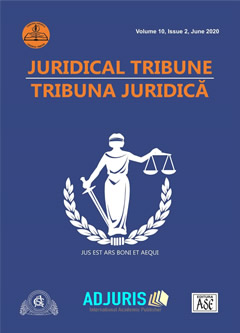Local self-government reforms in Europe: legal aspects of considering the communities' social identity
Local self-government reforms in Europe: legal aspects of considering the communities' social identity
Author(s): Tetyana Semigina, Olena Maidannyk, Yuriy Onischyk, Yaroslav ZhuravelSubject(s): Public Administration, Public Law
Published by: Societatea de Stiinte Juridice si Administrative
Keywords: social identity; local community; local self-government; local selfgovernment bodies; local government reform;
Summary/Abstract: The implementation of local self-government reform is closely linked to the social identity, a concept that includes common territory of residence, history of origin and development, social interaction, moral standards, values, traditions, interests, habits and needs. In order to study the realm of different European countries in implementing of the decentralization policy and the current state of regulation of the local-self government issues with respect to the social identity the comparative-law, formal and legal, and system structural methods were used. The cross-national comparative study reveals that in Austria, Spain, France, Poland, the formation of local communities’ associations was preceded with regard to the economic criterion and the permission of the executive branch, while the opinion of local communities’ members is only advisory. In Estonia, the legislation regulates the procedure on the formation of unions of townships or cities, aswell as a list of issues to be discussed with local communities’ members. However, the decisive move is still left to the government. In Ukraine, it is statutory that a decision to form a united territorial community could be adopted only after positive discussions with members of the relevant local communities.
Journal: Tribuna Juridică
- Issue Year: 10/2020
- Issue No: 2
- Page Range: 207-221
- Page Count: 15
- Language: English

